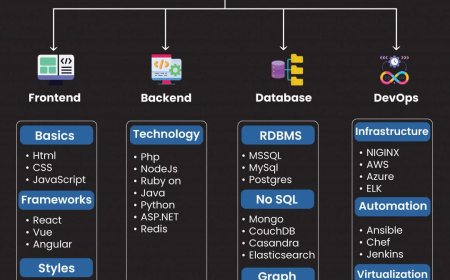Could Pawn to King's End Be the Next Great Screen Adaptation?
Could Pawn to King's End be Hollywood’s next hit? Explore why this gripping novel is ripe for a powerful screen adaptation.

In the evolving world of literary adaptations, where novels are frequently mined for compelling characters and intricate plots, Douglas A. Gosselins Pawn to King's End is quickly emerging as a strong contender for the next great screen adaptation. With its richly developed world, high-stakes narrative, and psychological complexity, the novel offers everything directors and producers seek in a cinematic masterpiece. But what makes Pawn to King's End stand out in a crowded field of potential adaptations? And why are fans and critics alike beginning to buzz with anticipation over the idea of seeing this powerful story brought to life on screen?
Story Made for the Screen
Pawn to King's End is not just a novelits a chessboard of deeply layered characters, strategic betrayals, and a tension-filled plot that unfolds like a thriller. Set in a dystopian future shaped by political manipulation and philosophical power struggles, the book centers on a young protagonist thrust into a world where every move has far-reaching consequences. This is not merely a story of survival, but of ascensionof how power can corrupt, and how intellect and intuition must work in tandem when the stakes are nothing less than societal collapse.
Douglas A. Gosselin has created a work that balances character-driven narrative with fast-paced action, an element that often distinguishes successful screen adaptations. The characters are richly human, each with their own ambitions, loyalties, and flaws. This emotional complexity offers fertile ground for actors to inhabit roles that resonate with both mainstream audiences and critical circles. One can easily imagine a seasoned cast bringing gravitas to these rolesthink of the layered performances in adaptations like The Queens Gambit or House of Cards.
Chess Metaphor as a Cinematic Device
Much like the game it references in its title, Pawn to King's End uses chess not only as a thematic element but also as a storytelling structure. Moves are deliberate, sometimes subtle, and often devastating. This metaphor lends itself well to visual storytelling, providing directors with an artistic lens through which to frame key moments. Think of the tension created in a single lingering shot, the ticking clock of a final move, or the silence that hangs before a decision is made. The strategic nature of the story, combined with visual motifs related to the game of chess, makes it inherently cinematic.
This kind of layered metaphorical storytelling is reminiscent of works like Tinker Tailor Soldier Spy, where the narrative reveals itself slowly, rewarding patient viewers with intricate payoffs. The chessboard settingboth literal and figurativeprovides a compelling backdrop for visual storytelling, drawing viewers into a cerebral world where battles are fought with wits as much as weapons.
Potential Franchise
In an industry hungry for franchises, Gosselin's novel offers more than just a one-off story. The world-building is expansive, hinting at histories untold and future conflicts that could sustain multiple films or even a serialized streaming format. From the covert factions operating in the shadows to the inner workings of a collapsing regime, Pawn to King's End offers fertile ground for spin-offs, sequels, and character-focused subplots.
Studios looking to tap into the intellectual thrillers that have captivated audiencesthink Westworld, The Man in the High Castle, or even Dunemay find in Gosselins work a similar blueprint. The book does not spoon-feed its narrative but instead challenges readers (and potentially viewers) to think critically, to draw connections, and to question motives. It is the kind of content that thrives in todays prestige TV landscape and among viewers who crave more than surface-level drama.
From Page to Screen: The Adaptation Challenge
Of course, translating a novel like Pawn to King's End to the screen would be no easy task. The internal monologues, philosophical questions, and nuanced strategies that make the novel so compelling require thoughtful direction and a smart script. Yet that challenge is precisely what makes the potential adaptation so exciting. With the right creative teamperhaps helmed by directors known for cerebral storytelling like Denis Villeneuve or David Fincherthe story could be transformed into a hauntingly beautiful, thought-provoking piece of cinematic art.
Sound design, cinematography, and editing will all play crucial roles in communicating the internal tension that the book does so well. The potential use of recurring visual symbolschess pieces, fractured mirrors, darkened corridorscould elevate the narrative from a simple political thriller to a masterpiece of modern psychological drama.
What the Critics Are Saying
Buzz surrounding a potential adaptation is not without foundation. Early reviews of the book Pawn to King's End by Douglas A. Gosselin have praised its intricate plotting, philosophical undertones, and emotionally rich character arcs. Readers have compared its intellectual depth to George Orwells 1984, while others highlight the cinematic quality of its narrative pacing. Its this duality, literary sophistication combined with visual potential, that has caught the attention of those in the entertainment industry.
Some reviews also point to the novels timely relevance, dealing with themes like surveillance, political disinformation, and the manipulation of truth. In a post-pandemic world grappling with AI ethics, global instability, and rising authoritarianism, Pawn to King's End feels more like a reflection of the present than a distant dystopia. That relevance could give any screen adaptation both critical clout and mass appeal.
Casting Speculations and Fan Favorites
While no official casting news has emerged, fans have already begun speculating on who might best embody the key roles. Names like Timothe Chalamet, Florence Pugh, and Rami Malek have surfaced in online forums as ideal leads, given their proven abilities to convey emotional depth and cerebral intensity. For supporting roles, seasoned veterans like Tilda Swinton or Gary Oldman could lend gravitas to the more enigmatic characters.
Of course, casting will be crucial in determining whether the adaptation succeeds. The emotional weight of the novel depends heavily on the viewer's ability to connect with morally complex figures. Finding the right actorsthose who can bring subtlety to roles that are often more gray than black or whitewill be a vital step in the adaptation process.
Fitting Score for a Masterpiece
Music could also play a powerful role in enhancing the storys atmospheric tension. A minimalist score, perhaps by composers like Hildur Gunadttir or Max Richter, could underscore the emotional and intellectual stakes without overshadowing the performances. Much like The Social Network or Sicario, a haunting soundtrack could elevate pivotal scenes into unforgettable moments.
Conclusion
In a landscape filled with reboots, sequels, and franchise fatigue, Pawn to King's End represents something rare: a fresh, intellectually engaging story that also has mass-market appeal. With critical praise mounting and fan interest growing, the question is not whether the book can be adapted, but whether someone will take the bold step to do it right.






































